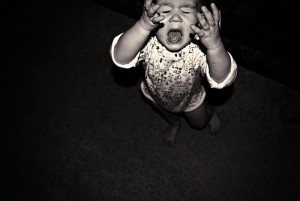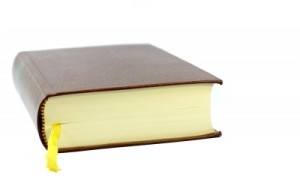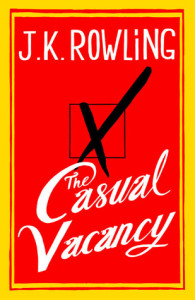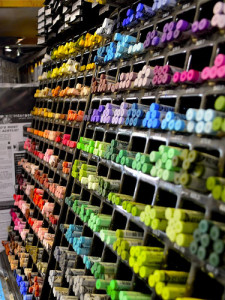
I don’t wanna read this book! Don’t make me! — CC image “Tantrum” courtesy of demandaj on Flickr. Some rights reserved.
I’ve picked up a book that I’m beginning to find intrusive.
This book is really getting in the way. I see it there, on the floor next to my bed, with the bookmark sticking out of its spine, and narrow my eyes at it. I know for a fact that beguiling cover is only a smokescreen for total entrapment. If I start reading again, I’ll be unable to stop for at least a few chapters, and then what’ll I do? Not much else with the rest of my day, that’s what!
Plus, I’ll get agitated. Terrible things are happening to the main character all the time. The book thinks it can fool me, because it starts out with a backdrop of lyrical words and natural beauty. Then it likes to hammer me and tear my guts out, before sending a few more soothing droplets of peace my way.
Keeping this book next to my bed is a bad idea. I want to know what is happening next, but on the other hand, I also want to sleep. I’ll lie down and get all cuddly with my book, knowing I’ll keep turning pages until the next emotional crash. At which point I will lie awake, fretting about the uncertain (fictional) future, as emotionally invested in the characters as if we were related.
I was browsing at the library (always a dangerous pastime) when I found the book, although I should only have been returning items and rushing out before my car meter expired. Intrigued by the cover and the title, I checked out the jacket flaps. Then I started reading the first chapter. I have a rule of thumb which says, if I am standing in a bookstore or a library for more than 10 minutes reading a book I only thought about “checking out” briefly, I need to pick up a copy for myself to read at home. The rule applied, so I took this dangerous novel back to my place with me, little knowing the emotional time-bombs it was going to set off in my psyche.
I knew the author, too; I’d read some of her short prose. That was destructive, also. In a beautiful way. This should have warned me, had I paid closer attention to the byline. But I was snookered by my own oversight.
Ooh, shiny pretty cover design!
I’ve had the book for a couple of weeks now — I usually read MUCH faster than this — and have made my painful way to the final third of the story. I had another book from the library waiting for me to read — the new Khaled Hosseini, which, since it was new, was only being lent for a limited time and I wasn’t allowed to renew it — which I didn’t get to read AT ALL because of Book Number One.
I had to return a book without reading it.
That never happens.
But, Alex, you might point out. All of the characteristics of the book you are complaining about — these sound like GOOD things. And you’d be right, of course. Don’t all of us want to create a world that’s so real it rivals the tangible surroundings of our readers? Don’t we all yearn to create characters who haunt our readers just like they haunt us? Don’t we all want our prose to be described by adjectives that we synonomize with “beautiful”?
Now, I like immersive fiction. After all, that’s kind of the point. I just like to be the one in charge, and right now, I’m not.
Book bully.
== == ==
When was the last time a book grabbed you by the scruff of the neck and dragged you kicking and screaming? Share in the comments!








